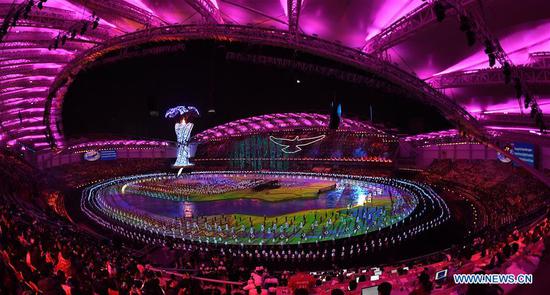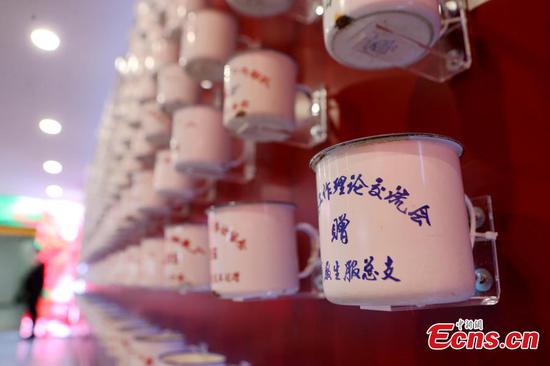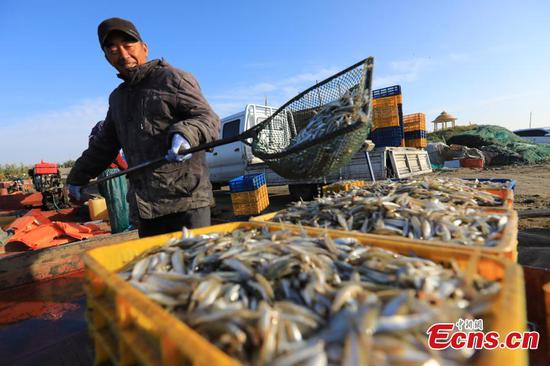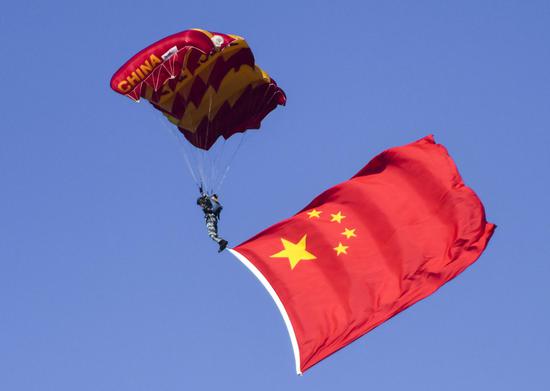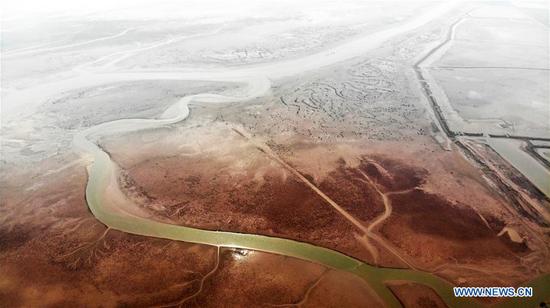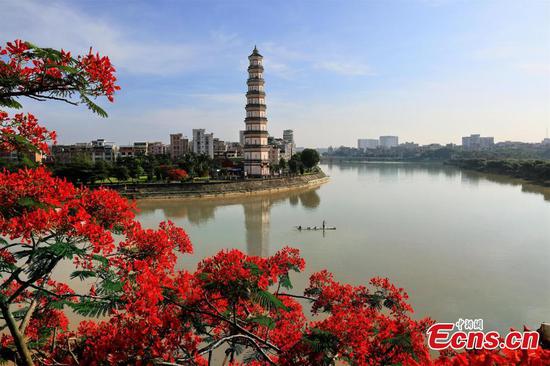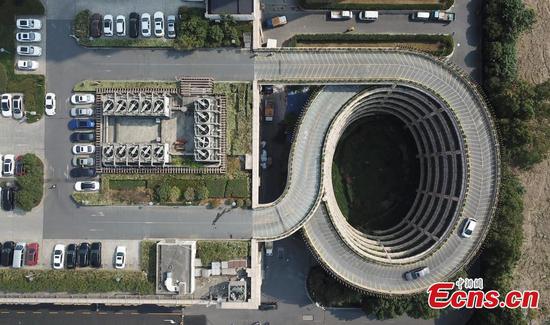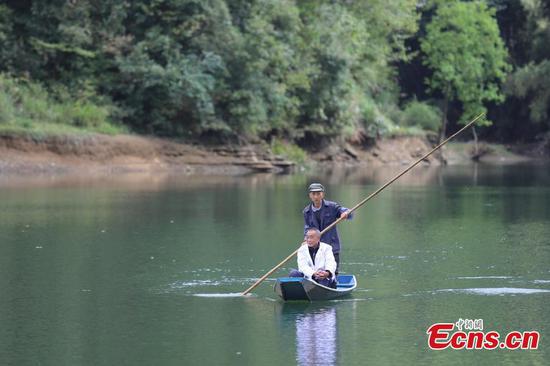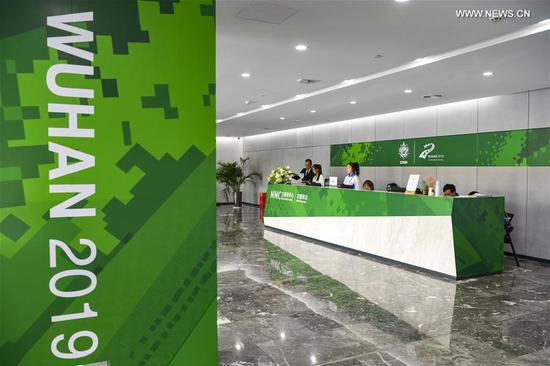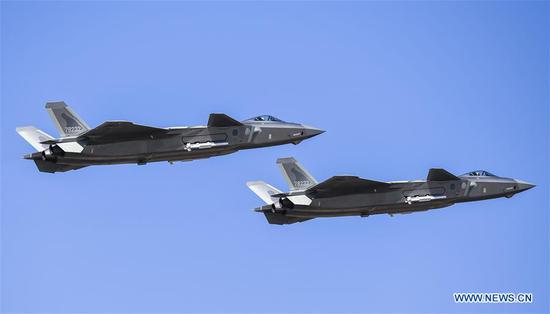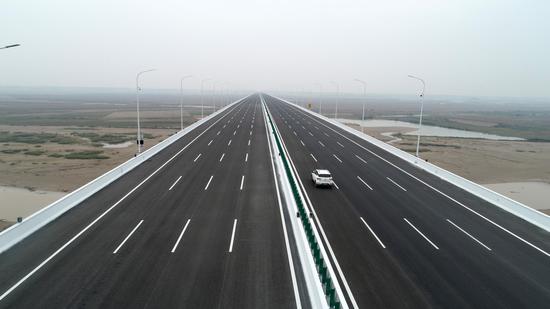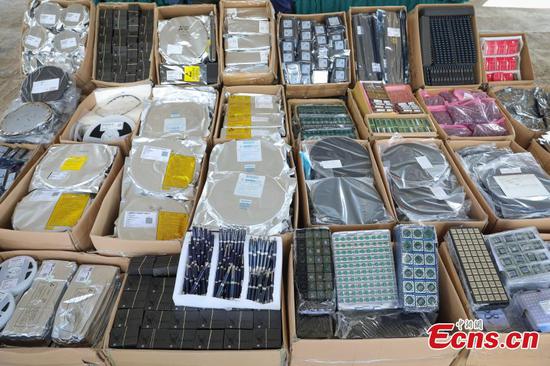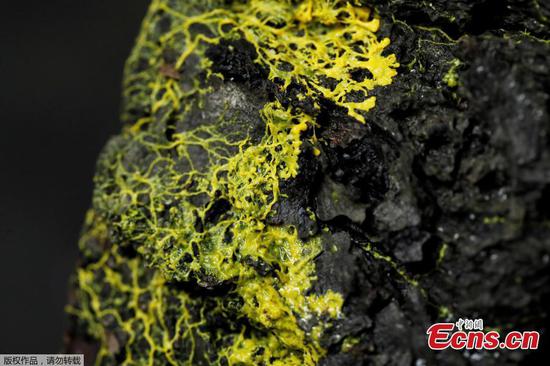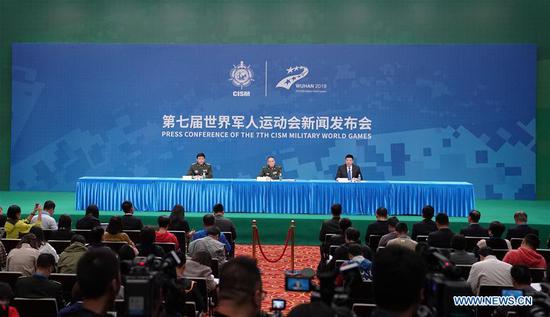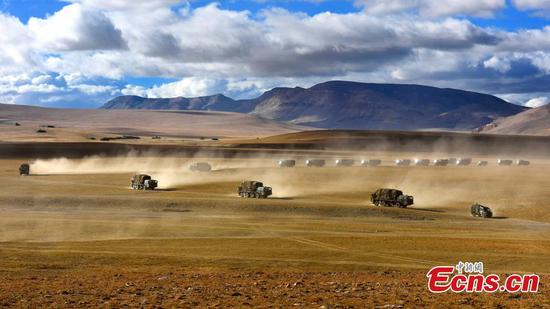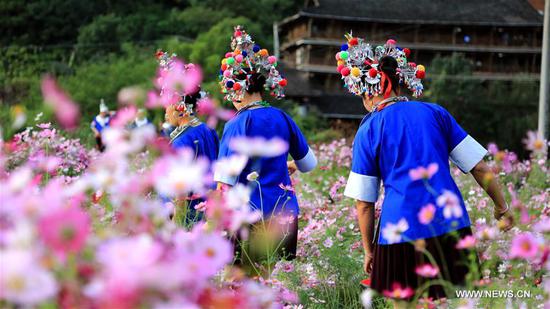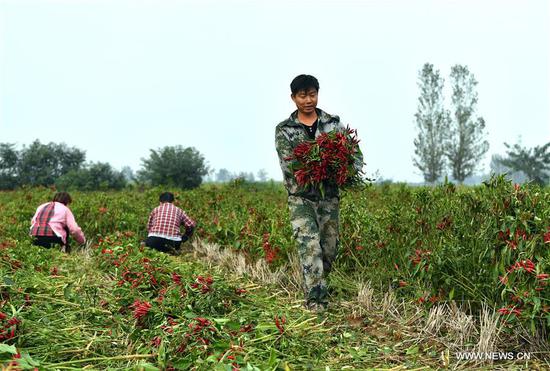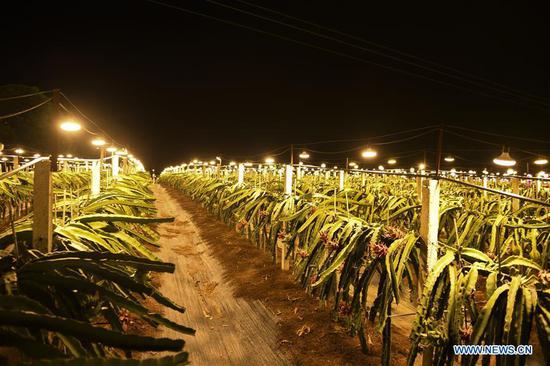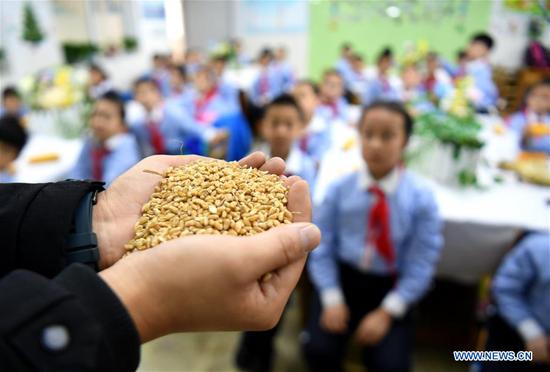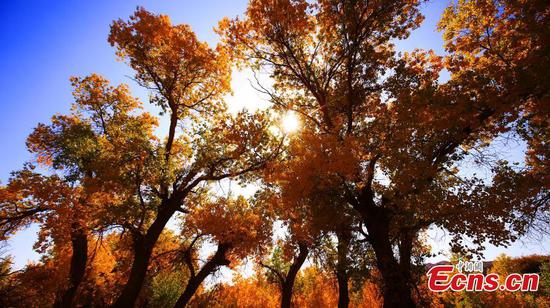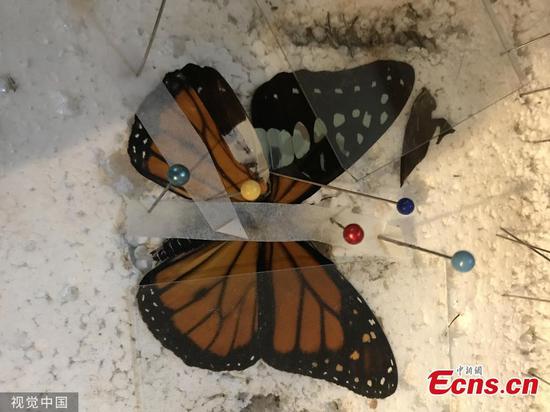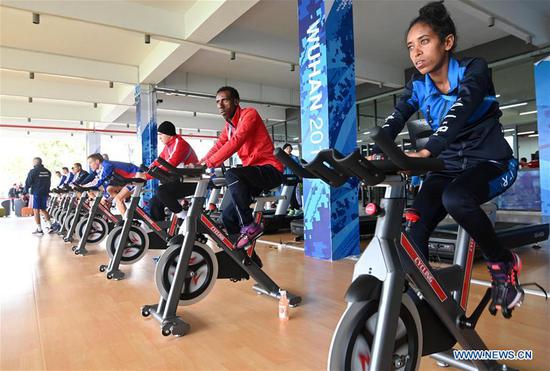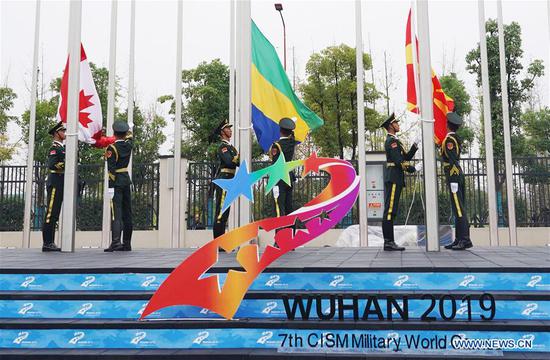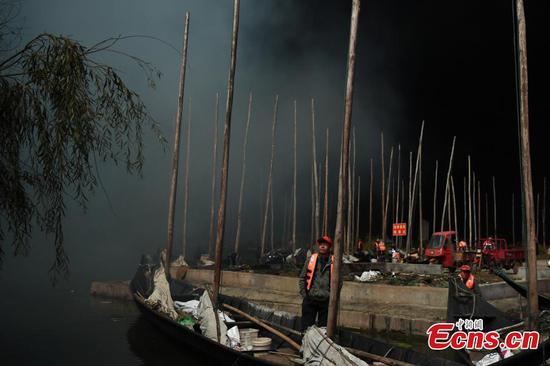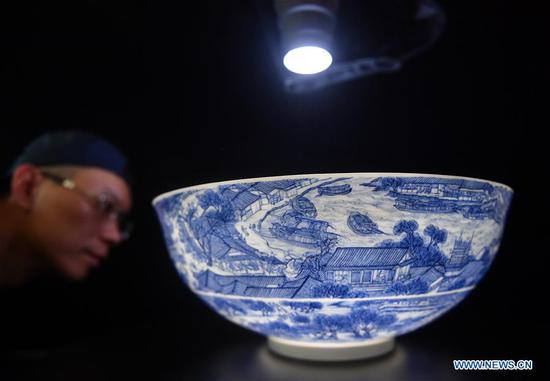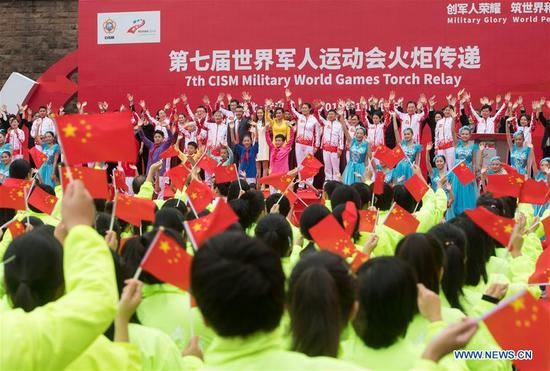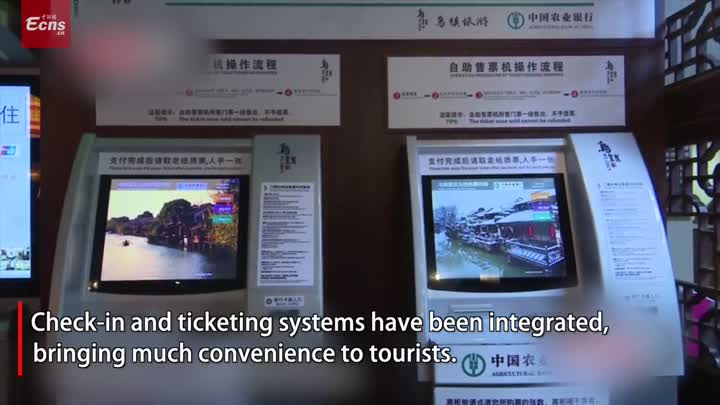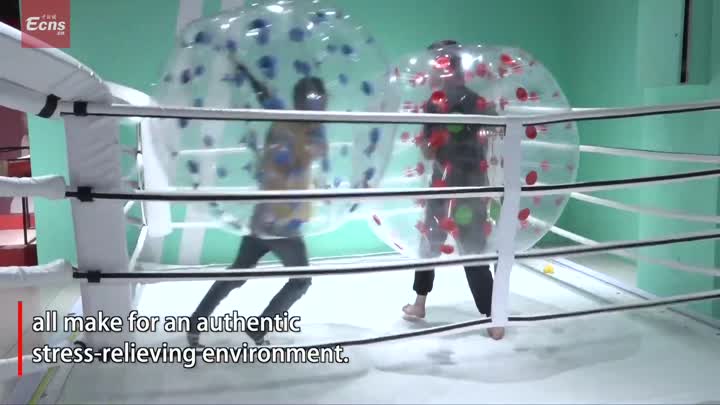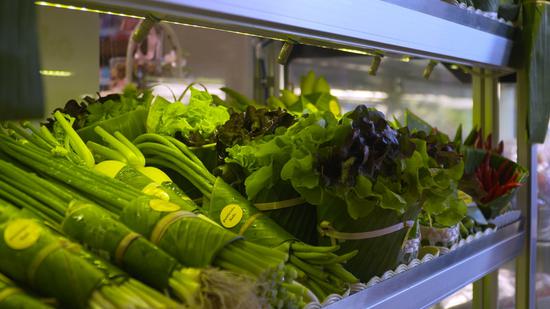
Banana leaves for packaging is an environment-friendly and aesthetically pleasing way to add color to the shopping experience altogether. (CGTN Photo)
- A supermarket chain in northern Thailand is returning to natural materials for everyday packaging use, including banana leaves.
- As the world's sixth largest contributor to marine plastic pollution, Thailand is waking up to the harmful effects of plastic pollution on our environment.
- The Thai government has announced a major agreement from large retailers, plastic manufacturers and department stores to stop handing out single-use plastic bags to customers in 2020.
The worldwide war on plastic has been given a massive boost with a supermarket in northern Thailand substituting plastic packaging with banana leaves.
At first glance, Rimping Supermarket in Chiang Mai looks just like other supermarkets across Thailand. But a banner announcing that it no longer provides plastic bags every Wednesday welcomes customers upon entering the place — this is something that is becoming increasingly common as the country wakes up to the harmful effects of plastic pollution on the environment.
Something different can be seen on one of the supermarket's fresh vegetable racks. Instead of plastic, chilies, lemongrass, asparagus and other fresh produce are wrapped in banana leaves and secured together with a string made from banana trunk
"We have worked internally in terms of our environmental policy for a long time," a representative of Rimping Supermarket said. "We tried other materials before, but banana leaves are easy for us since we live in a tropical country where banana leaves are abundant so supplies are infinite."
The simple, yet highly relevant innovation has not been implemented on all of the shop's fresh products. The supermarket still provides plastic packaging in the area as well.
"The challenge is to find a way to keep the produce fresh," the representative said, adding that "some vegetables are not suitable to be wrapped in banana leaves as it becomes too humid and it doesn't retain its freshness."
While banana leaf-wrapped food isn't something new in Thailand, it is unusual to see this traditional, biodegradable approach used on a large commercial scale.
Banana plantations are in abundance in tropical countries like Thailand.
The flexibility of the leaves makes it perfect for packaging. It's waterproof, don't leach any chemicals onto the food and once the customer is done with the packaging, the leaves are compostable, significantly reducing the need for single use plastics.
"We have worked internally in terms of our environmental policy for a long time," a representative of Rimping Supermarket said. "We tried other materials before, but banana leaves are easy for us since we live in a tropical country where banana leaves are abundant so supplies are infinite."
The simple, yet highly relevant innovation has not been implemented on all of the shop's fresh products. The supermarket still provides plastic packaging in the area as well.
"The challenge is to find a way to keep the produce fresh," the representative said, adding that "some vegetables are not suitable to be wrapped in banana leaves as it becomes too humid and it doesn't retain its freshness."
While banana leaf-wrapped food isn't something new in Thailand, it is unusual to see this traditional, biodegradable approach used on a large commercial scale.
Banana plantations are in abundance in tropical countries like Thailand.
The flexibility of the leaves makes it perfect for packaging. It's waterproof, don't leach any chemicals onto the food and once the customer is done with the packaging, the leaves are compostable, significantly reducing the need for single use plastics.
Elsewhere in Thailand, banning the use of plastic bags at traditional markets is still a big challenge for the Thai Government. Ranked sixth in the world for generating sea waste, Thais use an average of eight plastic bags each per day, almost 200 billion bags per year.
Aware of its considerable contribution to the mountains of plastic trash floating in the oceans, Thailand's government has announced a major agreement from big retailers to stop handing out single-use plastic bags to customers from January 2020.
And Rimping Supermarket's store policy can be seen as a huge step for a greener, plastic-free earth by going back to nature to find an alternative to plastic bags.
Dusita Saokaew









